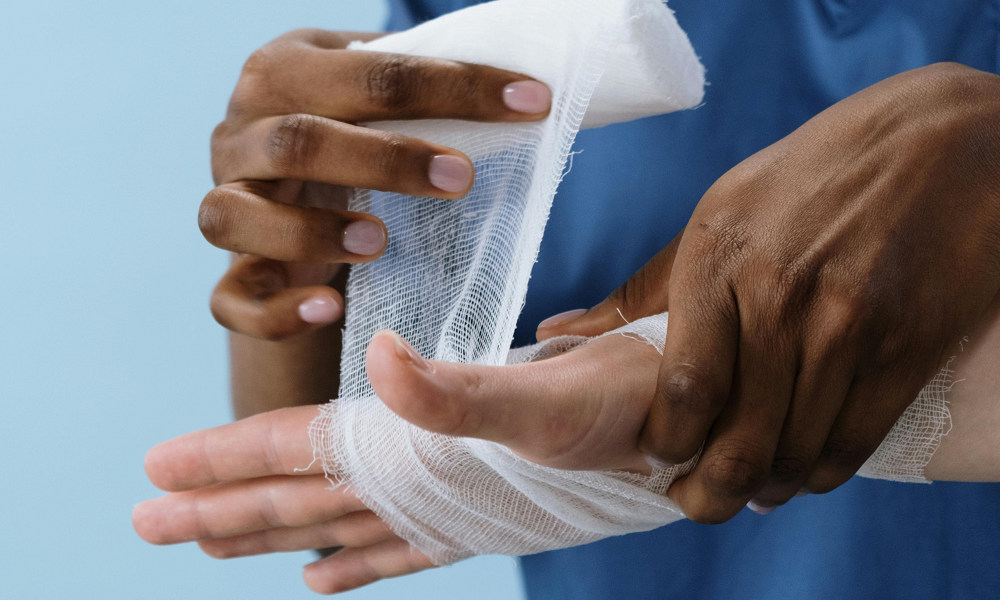Reviews
Understanding Personal Injuries: A Comprehensive Overview

Daytona Beach is a city known for its fast-paced energy—home to world-famous motorsports, stunning ocean views, and a steady flow of tourists and residents alike. But with all that movement comes an increased risk of everyday accidents, from vehicle collisions on busy streets to slips and falls in public spaces or workplace incidents. While many think of Daytona as a destination for excitement and sunshine, it’s also a place where accidents can turn lives upside down in an instant. Whether you’re a resident or a visitor, understanding what to do after an injury is essential.
From knowing your rights to seeking proper care and legal support, being informed makes a significant difference in how quickly and fairly you recover—physically, financially, and emotionally. This article offers a deeper look into the realities of personal injuries in Daytona Beach, shedding light on the most common causes, the legal steps that follow, and how to protect yourself moving forward.
Common Types of Personal Injuries
Personal injuries include incidents when a person is injured due to someone else’s negligence. These include car accidents, slip-and-fall cases, workplace accidents, and medical malpractice.
Car accidents can lead to whiplash, fractures, and concussions, and falls can cause sprains or fractures. Personal injuries can range from repetitive strain injuries associated with the workplace to injuries related to machinery and other acute harm. Being aware of these scenarios allows individuals to stay informed about potential risks.
Causes of Personal Injuries
There are many ways a personal injury can occur. Distracted driving continues to be a top reason for car accidents. Often, a driver who is on their phone or other device while driving loses focus, which causes a crash. Rough road conditions can also contribute to the occurrence of accidents. In the workplace, injuries are usually caused by poor safety protocols and inadequate training. Employees who are not adequately trained in using equipment will be at risk.
Legal Considerations
It is important to know about your legal rights after an injury. Personal injury claims can include compensation for medical expenses, lost wages, and pain and suffering. This payment can relieve some of the financial burdens caused by the incident.
A lawyer can help you navigate the legal process. They can also collect evidence, file claims, negotiate with insurers, and, if needed, represent you in court. You also need to know there are deadlines for filing personal injury claims, known as the statute of limitations.
Steps to Take After an Injury
After suffering an injury, certain actions can help protect your rights. First, seeking medical attention is crucial, even if injuries seem minor. Medical professionals can document injuries, which serves as important evidence in any legal proceedings. Documenting the scene of the accident could also be helpful. Taking photographs, collecting details from witnesses, and making any necessary notes can help support any claims in the future. It is also useful to maintain a log of medical treatments and expenses. Finally, contacting a lawyer can shed some light on the next steps. They can advise injury victims on possible claims and ensure they are aware of their rights and legal options.
Importance of Safety Measures
Often, personal injuries are caused by a failure to follow safety regulations. Maintaining focus while driving, obeying all traffic laws, and avoiding distractions is essential for avoiding accidents. Regular maintenance can help prevent mechanical failures that lead to accidents.
Workplaces that follow mandatory safety protocols and use necessary protective equipment can reduce the risk of harm. Employers must ensure all staff are given adequate training and follow all safety protocols.
Property owners must keep their property safe for visitors. Taking these measures can help avoid slip-and-fall accidents.
Emotional and Psychological Impact
Personal injuries can also cause emotional or psychological damage in addition to physical harm. It can lead to stress, anxiety, or depression after the incident. Being aware of these feelings and finding someone to talk to can help. Counseling or online support groups provide resources on dealing with the emotional fallout of injuries.
Conclusion
Personal injuries are complicated. Many individuals do not understand how to navigate the claims process because they are unaware of their legal rights and preventative measures. Access to legal resources can help injury victims understand how to protect their rights in the aftermath of the incident.

-

 World1 week ago
World1 week agoEthiopian volcano erupts for first time in thousands of years
-

 Health2 days ago
Health2 days ago8 kittens die of H5N1 bird flu in the Netherlands
-

 Legal7 days ago
Legal7 days agoUtah Amber Alert: Jessika Francisco abducted by sex offender in Ogden
-

 US News6 days ago
US News6 days agoExplosion destroys home in Oakland, Maine; at least 1 injured
-

 Health7 days ago
Health7 days agoMexico’s September human bird flu case confirmed as H5N2
-

 Legal3 days ago
Legal3 days ago15 people shot, 4 killed, at birthday party in Stockton, California
-

 World7 days ago
World7 days agoWoman killed, man seriously injured in shark attack on Australia’s NSW coast
-

 Health6 days ago
Health6 days agoMarburg outbreak in Ethiopia rises to 12 cases and 8 deaths




